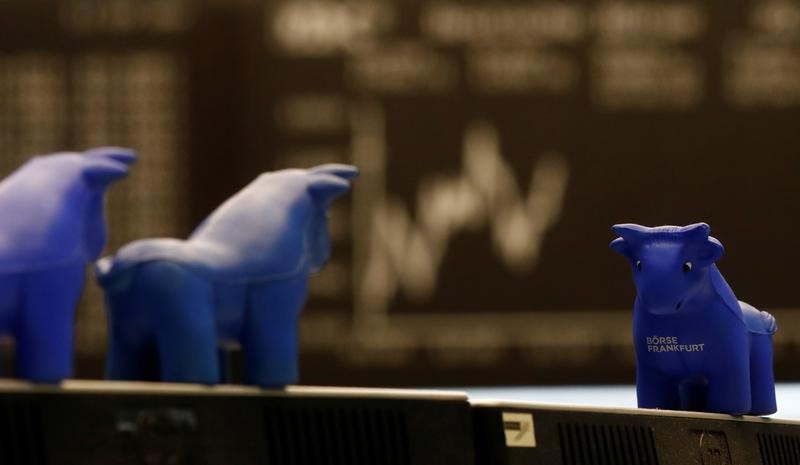By Peter Nurse
Investing.com - European stock markets traded higher Thursday, boosted by weaker-than-expected regional inflation data and strong results from retail giant H&M.
At 03:55 ET (07:55 GMT), the DAX index in Germany traded 1% higher, the CAC 40 in France climbed 0.9% and the FTSE 100 in the U.K. rose 0.5%.
UBS (SIX:UBSG) stock continued to push higher Thursday, adding another 2% to Wednesday’s similar-sized gains, after investors were buoyed by the decision of the Swiss banking giant to persuade Sergio Ermotti to return to his role of CEO as it attempts to integrate troubled peer Credit Suisse following its government-sponsored acquisition.
With fears of a widespread banking crisis easing, investor attention has largely switched to the battle central banks face in trying to tame still elevated levels of inflation.
In the U.S., the Fed's favorite gauge of inflation, core PCE price index, is due on Friday, but ahead of that comes the release of preliminary CPI data from Germany, the largest economy in the Eurozone.
The first German state to report earlier Thursday was North Rhine Westphalia, the most populous, and its CPI rose 0.6% on the month in March, an annual gain of 6.9% - a slowing in growth from the previous month’s 0.8%, and annual 8.5%.
Additionally, Spanish inflation plummeted as energy costs retreated, with March’s headline reading coming in at 3.1%, down from February’s 6%.
In the corporate sector, Hennes & Mauritz (ST:HMb) stock soared almost 10% after the world’s second-largest international clothing retailer reported a surprise first-quarter operating profit, with the fast fashion giant boosted by the consolidation of second-hand platform Sellpy into its operations.
Oil prices edged higher Thursday, continuing the week's positive tone after U.S. crude stocks fell substantially amid disruptions to Kurdish oil exports.
U.S. crude oil inventories fell by 7.5 million barrels in the week to March 24, according to official data from the U.S. Energy Information Administration, the biggest draw since late November.
Additionally, disruptions in Kurdish oil shipments have cut out about 450,000 barrels per day, or 0.5% of daily global supply, tightening the global supply situation.
By 03:55 ET, U.S. crude futures traded 0.5% higher at $73.34 a barrel, while the Brent contract climbed 0.4% to $77.90.
Both contracts have registered gains of over 2% so far this week, but are nursing sharp losses for the year amid fears that an economic slowdown will severely crimp crude demand.
Additionally, gold futures fell 0.1% to $1,983.40/oz, while EUR/USD traded 0.1% higher at 1.0854.
